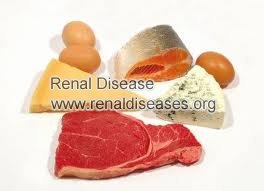Whatsapp: +8615512139310
- Email us:
 Normally, patients with nephrotic syndrome who do not start dialysis or kidney transplant are recommended to eat a low proptein diet. Do you know why will they be asked so? This passage is going to give you an answer!
Normally, patients with nephrotic syndrome who do not start dialysis or kidney transplant are recommended to eat a low proptein diet. Do you know why will they be asked so? This passage is going to give you an answer!
Proteinuria is one of the distinguishing features of nephrotic syndrome. Besides proteinuria, nephrotic syndrome is also characterized by hypoproteinemia, heavy swelling and hyperlipemia.
Kidneys are responsible to keep some useful substances in blood, providing us the necessary nutritions. Because of kidney disease, the charge barrier is broken, so kidneys cannot keep the protein in blood. They will leak out and be discharged though urine. So there will be proteinuria. The more protein you take, the more proteinuria you will have.
We all know that protein in our body will provide us enough energy and it is high nutrition. But you may not know that once the protein is taken, some of them will be absorbed by our body, and some of them will be decomposed into nitrogen waste, such as the urea nitrogen, which should be filtered by kidneys.
The filtration function of kidneys have already declined. So the waste product will accumulate in blood, causing many symptoms, such as anemia, itching skin, bad taste in mouth, intestinal tract discomforts, etc. So you are suggested to take a low-protein diet to reduce the burden of kidneys and reduce the symptoms. Low-protein diet will provide a favorable environment for the recovery of the disease.
To prevent malnutrition, you are suggested to eat high-protein foods, such as fish, chicken, lean meat, eggs and milk. They can not only provide more nutritions, but also produce less waste product. Chat with your doctor before you make any change of your diet plan. If you do not know how much protein you should take everyday, you can ask your doctor or you can consult the online doctor! They will give you a resonable suggestion according to your own condition.
Low protein diet for nephrotic syndrome is necessary. It can help treat the disease and improve the life quality. Any questions? You will get more help by sending an email to renal-disease@hotmail.com or leave a message below!